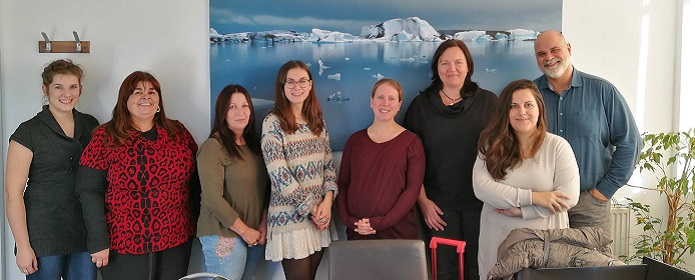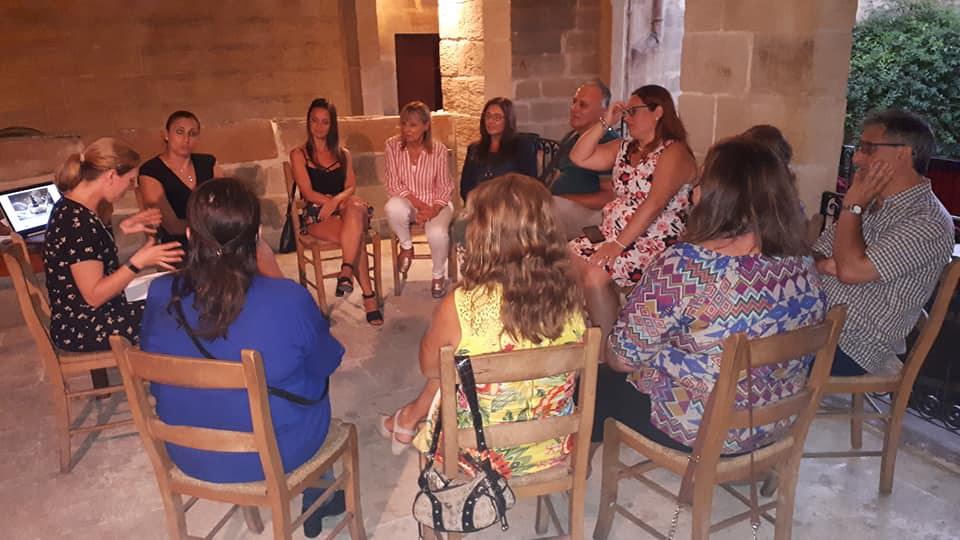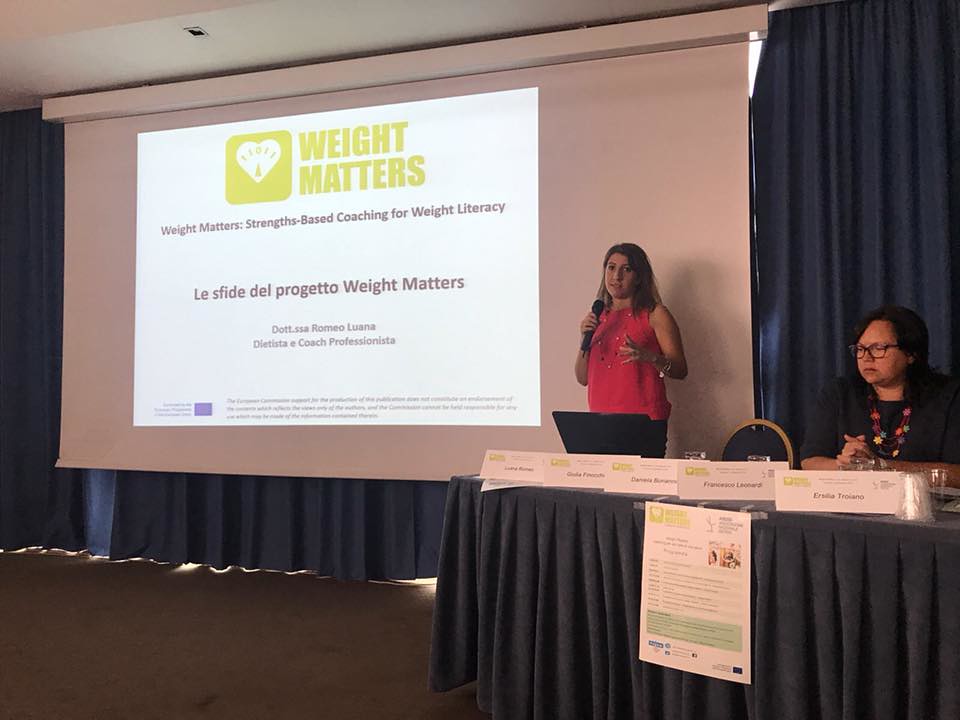
Transforming people’s lives and tackling the obesity crisis through a health and wellbeing programme
A group of Yorkshire residents not only shed the pounds, but have also changed their outlook on life after taking part in the Weight Matters Erasmus+ project.
Sheffield-based Inova Consultancy led the initiative, which brought together experts, ranging from nutritionists to yoga instructors, to develop a holistic approach to health and help people manage their weight sustainably.
With partners in Italy, Greece and Malta, the project focused specifically on lower socio-economic groups, as research showed there was a strong relationship between people from these backgrounds and the risk of obesity.
Strengths-based training and mentoring
The Weight Matters team set out to develop a strengths-based training and mentoring programme that supported individuals wishing to better manage their weight, as well as helping adult educators, health workers, coaches and mentors to empower their clients.
“It’s not just about losing pounds, it’s all about achieving a better, healthier lifestyle,” said Marina Larios, Inova Consultancy’s director. “This will lead to more sustainable weight management based on a change in mindset rather than crash diets."
The core modules of the programme were: Confidence and Neuro-linguistic programming for Weight Control, Mindfulness and Self-Hypnosis, Healthy Living, Weight Literacy.
“What and how we eat has a lot to do with our stress levels. It’s important to understand these triggers if we want to be in control of them, which is why we focus on meditation and hypnosis as well as nutrition and exercise,” said Marina.
A new approach to weight loss
The aim of the project was to provide a new approach to weight loss and control, including a training programme, an e-learning platform and e-guide, and Health Mentoring Circles, which are peer coaching sessions designed to support individuals in their goals. All of the resources are available on the Weight Matters website.
“As part of the Health Mentoring Circles, it is important for people to be accountable for their goals. We would encourage clear, SMART goals that are shared with the group.
“Having the support of the group makes it a much more positive experience. They shared how many steps they did, they used to walk together to ensure they kept each other motivated. If you are supported in your small steps, the change will be more sustainable."
Concrete changes for individuals and families
One UK participant, Ruth Johnson, shared her experience of the programme:
“It is not the typical weight loss class, you are not judged every week. This course helps you realise what small things you can do to change your lifestyle and it is a comfortable transition.
“The value that Health Mentoring Circles brings to people’s lives its immense and unmeasurable. I totally appreciate what this course and these mentors have done and empowered me to do. They have increased my knowledge and understanding of how I can live a happier, healthier lifestyle.”
“We have provided training and mentoring support to over 300 adults during the project, both face-to-face and online," Marina said. "Every respondent reported they had made concrete changes to their lifestyle, of which physical activity and change of mindset were key areas of change.
“Most of the people who took part in this project were parents, so their journey had a tremendous impact on their families as well.
“One gentleman used to have seven spoons of sugar in his coffee and always buy big tubs of ice cream, so his family would just have ice cream whenever they wanted.
“His initial goal was to start running one day a week, but he really got into running and started losing weight. He then started to become healthier and when he learned about nutrition and the impact of sugar better, then he ditched the ice cream for everyone and it really transformed his family.
“We’re still in touch through our WhatsApp group and he has really changed his life.”
The overseas partners also felt the impact of the project.
“After going through the whole programme here in Malta, I truly believe that Weight Matters has a place in the local market," said Maryrose Francica, project manager at Across Limits, Malta.
“For the last round of the Health Mentoring Circles we had people fighting to attend. So much so that we had to hold a few extra Circles just to accommodate everyone. During the final event, people kept asking ‘when is the course starting again?’”
The resources from the training programme are already in use outside of the project.
“Our Italian partner, the National Association of Dieticians (ANDID), has more than 1,000 members. They uploaded a lot of our outputs onto their website and shared the resource at their meetings, so that the dieticians could use it with their patients," Marina said.
“Many of them have taken on the Circles methodology and started doing a consultation in groups, so they then have a group to rely on for motivation and positive support. So, informally, I know it had a lot of impact on the way people work.”
Finding participants
“To recruit participants, we went to community groups, exercise classes, mothers groups and factories. We also contacted healthy living consultants and told them about the project to see if they would like to refer their clients or share the programme.
 “Word-of-mouth is really important for developing trust and encouraging people to try something new.
“Word-of-mouth is really important for developing trust and encouraging people to try something new.
“We tried to deliver our training in community centres in deprived areas,” explained Marina. “One group enjoyed the Zumba class so much that they looked into local funding to support permanent Zumba classes in the area.
“We went to BBC Radio Sheffield to promote the project and they followed one of our participants to find out how they were progressing. We also had social media adverts to promote the project.
“For successful dissemination, you just have to have a go at everything! For the second pilot, we got a lot of recommendations from the first group, asking them to refer people was a great way to get people on board.
Working with partners
“When we were putting the project idea together, we looked at all the requirements, from the IT to the nutrition, to the countries that were suffering the most, and the expertise we could all bring. The deliverables really reflect the diversity of the expertise of the partners.
“As the lead organisation you need to look at your partners’ strengths and empower them to take the lead on certain aspects and outputs of the project, as this adds another point of view, feels fairer and encourages better team working. We had a good feeling of collaboration in this project,” said Marina.
“We all learned a little bit about something else on this project. I learned so much about nutrition, we were all very interested in the topic and became healthier ourselves as a result.”
Want to see what else you can do with adult education funding? Read other adult education stories!
